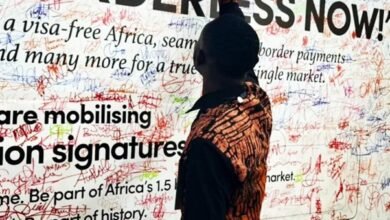Tunisia : 14 years after the Revolution, an unfinished bet ?
Fourteen years after the Revolution, Tunisia remains at a crossroads. While freedoms have been achieved, major challenges persist. Yet, new opportunities in the digital sector and the green economy are shaping the outlines of a new Tunisia...

By Insaf Boughdiri, editorial manager, ANA
When the Revolution broke out, everything seemed possible. Tunisians believed that freedom of expression, democracy, and social justice would finally translate into concrete realities. And at first, this seemed to be the case: free elections, voices being heard, and a breath of fresh air after years of oppression. But little by little, the euphoria faded. Political instability quickly became the norm, with successive governments failing to turn promises into tangible reforms. This democracy, so eagerly awaited, today appears fragile and threatened by authoritarian tendencies and an increasingly centralized power.
Resilience and Innovation: Tunisia between promises and new horizons
Digital technology and renewable energy are emerging as key sectors in the country’s reinvention
The dreams of dignity carried by those who brought down Ben Ali remain out of reach for many. While freedom has been won, dignity remains a mirage for much of the population. Unemployment, an unbearable burden, hits young graduates particularly hard, leaving them feeling betrayed by an economic system unable to offer them a future. Yet, beyond economic and political turbulence, a renewal is underway. The Tunisian private sector is beginning to chart new paths, finding promising niches. Among them, digital technology and renewable energy are emerging as key sectors in the country’s reinvention.
The digital sector is experiencing rapid growth. Bold startups are investing in cutting-edge technologies such as artificial intelligence, blockchain, and cybersecurity, which have become essential to modernizing Tunisia’s economy. These innovations are no longer confined to major cities; they increasingly engage young talents, often trained abroad or through specialized programs, who launch projects with the ambition of solving local challenges. These initiatives show that hope can be rekindled even in adversity.
Renewable energy, particularly solar and wind power, is emerging as a strategic lever for Tunisia’s future. While the country has yet to fully harness its potential, the energy transition is becoming an imperative. These initiatives not only address growing energy needs but also foreshadow a more sustainable future where Tunisia could play a key role on both regional and global scales.
However, these emerging sectors, while essential, remain marginalized compared to traditional industries. Their development depends on better cooperation between the public and private sectors and on simplifying administrative procedures, which remain a significant obstacle for many project leaders. These underutilized fields could become the driving force behind an economic revival. In a climate where the traditional economy struggles to recover, these niches represent one of the few engines capable of revitalizing the economy and creating sustainable jobs.
The road ahead, however, is fraught with challenges. A slow and change-resistant administration must reform to support these innovations. Tunisia’s future depends on it. Yet, despite the many challenges, the country continues to hope, carried by these bold and promising initiatives.
A nation at a crossroads…
The story of this country is still being written. Perhaps the best is yet to come
So, fourteen years on, where do we really stand? The 2011 Revolution brought new freedoms and rights. But these fragile and precious achievements often seem under threat. While democracy exists, it struggles against the harsh realities of day-to-day governance. Yet it would be unfair to label Tunisia a failure. Despite the disappointments, hope persists. There is a civil society that resists, a youth that refuses to give up, and entrepreneurs who still believe in their country.
Perhaps the real challenge is how to turn this hope into a concrete driver for sustainable change. Tunisia stands at a crossroads, and it is up to the nation to choose the path it will take. But we must not forget: the story of this country is still being written. Perhaps the best is yet to come. Or perhaps, in this quest for change, the road will remain long, fraught with obstacles, and full of challenges to overcome.






